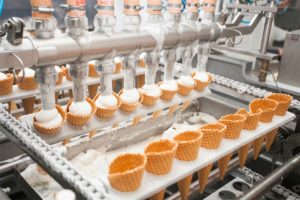Businesses sometimes fail to claim the Research & Development (R&D) Tax Credit due to confusion as to what activities and expenses qualify. These companies aren’t aware that their daily activities meet the four requirements that fulfill the IRS Four-Part test. Such is the case with the food manufacturing industry.
Companies within the food manufacturing industry conduct daily activities which may qualify for the R&D Tax Credit. The development of new products associated to food safety, nutrition guidelines, cost efficiency, recipe experiments and packaging methods are considered qualifying research activities (QRAs) when claiming this valuable tax incentive. Failures within the product creation phase can also be categorized as QRAs, regardless of it being considered a “failed project”. The IRS’ “failed project” provision is essential for companies in the food manufacturing industry because they constantly test products and some of them don’t meet the safety or nutritional guideline threshold.
The following activities are examples of QRAs performed by businesses within the food manufacturing industry:
- Developing recipe formulations for new products
- Testing prototype samples
- Designing new packaging to improve shelf life
- Producing new or improved agricultural and chemical materials.
- Improving production process to increase cost and time efficiency.
- Developing or improving new or existing formulations to enhance flavor, appearance, viscosity, texture, etc.
Additionally, food manufacturing companies hire technical personnel such as scientists, dietitians, engineers and nutritionists who conduct the QRAs mentioned above. These employees’ wages can be taken into account when calculating the tax credit, as their wages are considered qualifying research expenses (QREs).

